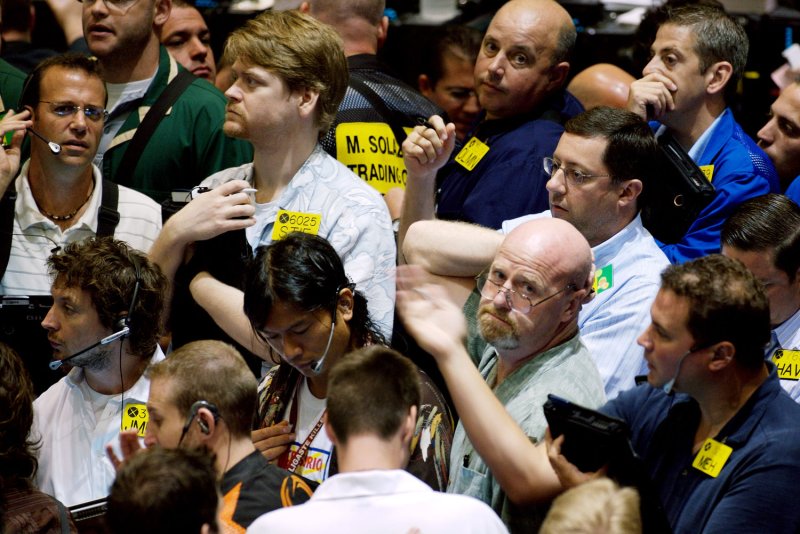Crude oil prices turn lower as the fallout from weekend meetings of the G7 spill over into the Monday trading session. File Photo by Monika Graff/UPI |
License Photo
June 11 (UPI) -- Crude oil prices turned lower in early Monday trading amid broad-based economic concerns over the fallout from weekend meetings of the G7 in Canada.
Testy post-conference comments from U.S. officials were met with frustration from Canadian and European leaders. Apart from public comments, the communiqué itself was telling. U.S. President Donald Trump backed out of a joint statement after leaving the summit early for a historic meeting in Singapore with North Korean leader Kim Jong Un.
In statements on climate change and clean energy, the G7 statement hints at division by citing "Canada, France, Germany, Italy, Japan, the United Kingdom and the European Union" as united on low-carbon initiatives, while the United States was mentioned independently as advocating for the clean and efficient use of fossil fuels.
Before the summit, the Trump administration infuriated European allies with insistence for stiff aluminum and steel tariffs. Giovanni Stauvano, a commodity analyst at UBS, told UPI that word of more production from parties to an effort coordinated by the Organization and Petroleum Exporting Countries to balance an oversupplied market and lingering trade tensions were influencing the price of oil on Monday.
"I think the weekend news of weaker Russian compliance so far in June and the division at the G7 meeting are weighing on oil prices today," he said.
The price for Brent crude oil, the global benchmark, was down 0.95 percent as of 9:21 a.m. EDT to $75.72 per barrel. West Texas Intermediate, the U.S. benchmark for the price of oil, was down 0.65 percent to $65.11 per barrel.
Russian Energy Minister Alexander Novak said Moscow was on the same page as Saudi Arabia when it came to the oil market. Both sides have suggested they'd put more oil on the market in the second half of the year in order to offset chronic shortages from Venezuela and potential shortages from Iran.
Iran is working to ensure a market share in the face of U.S. sanctions pressures. Its oil minister recently said OPEC statutes were outlined in a way that would ensure member states remain active.
Article 2 of the OPEC statute states that regard should be given "at all times" to the interests of oil producing nations in terms of steady income and a regular supply of oil for consuming nations.
It's unclear, meanwhile, how markets are reacting to a U.S.-North Korean summit underway in Singapore. President Trump is expected to meet only briefly with North Korean officials.
Alison Evans, the deputy head of Asia Pacific country risk at IHS Markit, said the first outreach is largely symbolic.
"North Korea will probably be unwilling to 'denuclearize' as defined by the United States and its allies, either in any joint statement or in subsequent official-level talks," she said in remarks emailed to UPI.















